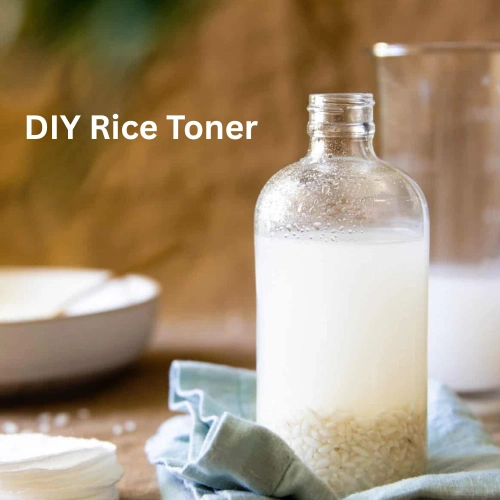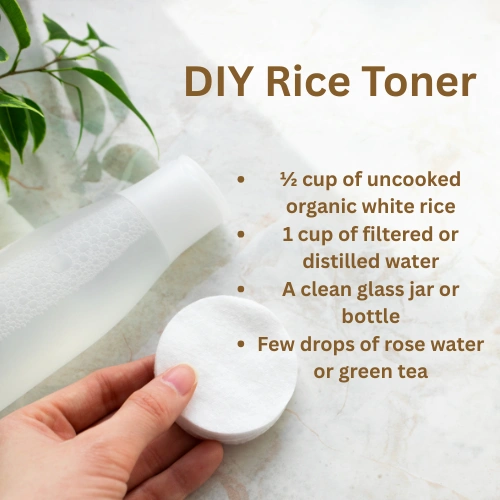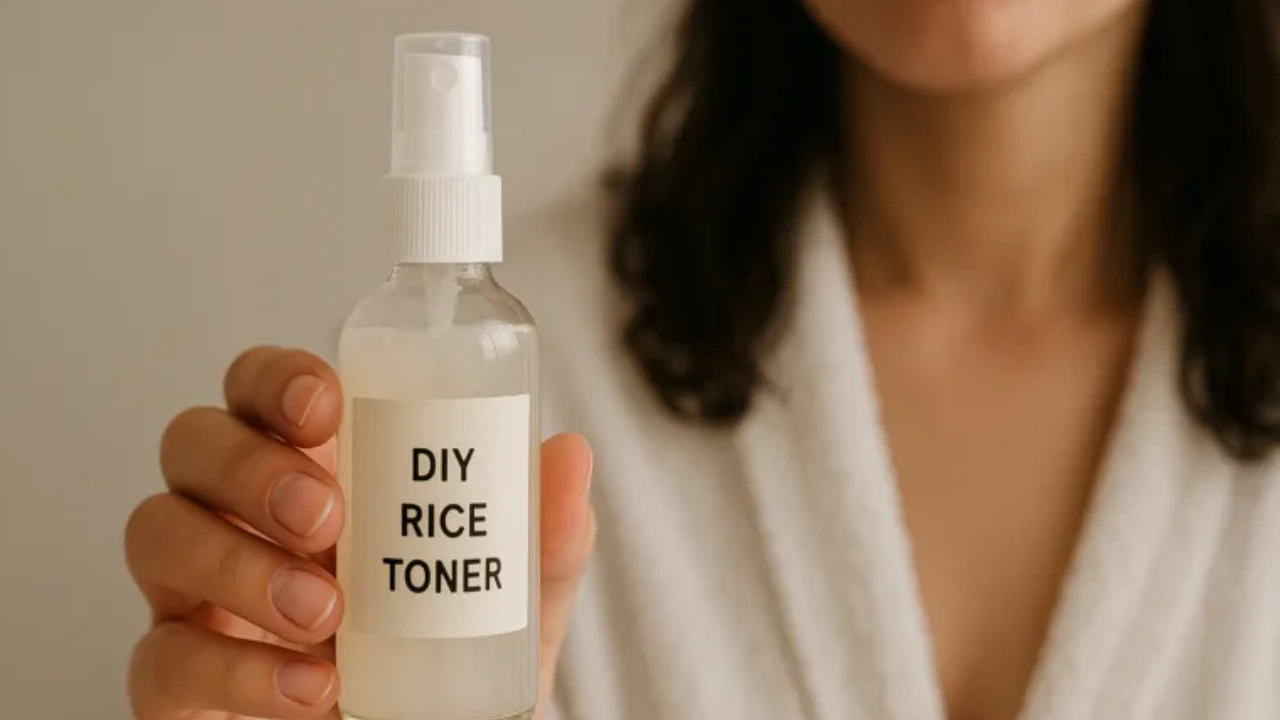Rice water has been a beauty staple for centuries, but it’s recently gone viral on social media—and for good reason. This natural toner is beloved for its skin-brightening properties, anti-aging effects, and gentle hydration. Whether you’re chasing that “glass skin” look or just want a simple, affordable toner that works, rice water might be your skin’s new best friend. And the best part? You can make it at home in just a few simple steps.
Why Rice Toner Is So Popular

Rice toner is praised for its ability to:
- Brighten skin tone thanks to natural enzymes and antioxidants in rice starch.
- Minimize the appearance of pores, giving skin a smoother texture.
- Hydrate and soothe due to amino acids, ferulic acid, and allantoin.
- Support skin barrier repair, making it ideal for sensitive or irritated skin.
- Fight aging signs with its antioxidant-rich makeup.
This popularity is also fueled by its simplicity: just rice and water – with no harsh chemicals, fragrances, or preservatives.
DIY Rice Toner Recipe

Ingredients:
- ½ cup of uncooked organic white rice (you can also use brown or jasmine rice)
- 1 cup of filtered or distilled water
- A clean glass jar or bottle with lid
- Optional: a few drops of rose water or green tea for added benefits
How to Make Rice Toner (Step-by-Step)
- Rinse the Rice:
Place the rice in a bowl and rinse it thoroughly 1–2 times to remove dirt and impurities. - Soak the Rice:
Add 1 cup of filtered water to the clean rice. Stir gently for about 30 seconds. - Let It Sit:
Cover and let the mixture soak for 30 minutes to 1 hour. Stir occasionally. The water will turn cloudy—that’s your toner base. - Strain the Rice Water:
Use a fine mesh strainer to pour the rice water into a clean bottle or jar, discarding the rice. - Optional Add-ins:
Add a few drops of rose water or brewed green tea to enhance soothing and antioxidant benefits. - Chill It:
Store the toner in the refrigerator.
Warnings & Storage Tips
- Always refrigerate your rice toner to keep it fresh and bacteria-free.
- Use within 5–7 days. Discard it if you notice a sour smell or color change – it’s no longer safe for skin.
- Do a patch test before first use to check for any skin sensitivity.
- Don’t use fermented rice water if your skin is very sensitive, as it may cause irritation.
- Avoid applying it over broken or inflamed skin to prevent stinging or inflammation.

